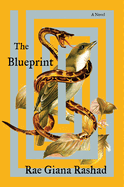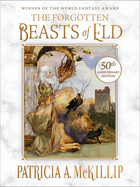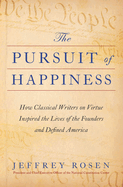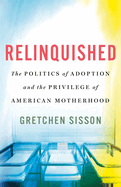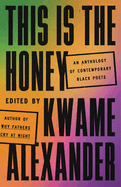Week of
This week in our book reviews, we cover landscapes wild and wonderful, fearsome and familiar. Rae Giana Rashad's speculative debut, The Blueprint, "introduces an uncanny society built on the heels of Civil War II" in a reshaped United States. And The Forgotten Beasts of Eld revisits Patricia A. McKillip's "groundbreaking classic fantasy... about a fearless young sorceress and her menagerie of magical animals" in a special 50th anniversary edition, with a new introduction from Marjorie Liu and illustrations by Stephanie Law. Plus, Hayley and John Rocco offer young readers "a powerful, accessible message and remarkable illustrations" in Wild Places: The Life of Naturalist David Attenborough.
For The Writer's Life, Amina Gautier, author of The Best That You Can Do, shares what it was about the first time she read The Color Purple that changed her life, and so much more!
The Painter's Daughters
by Emily Howes
The Painter's Daughters by Emily Howes, an enthralling drama of sisterly devotion and deception in 18th-century England, introduces readers to Molly and Peggy Gainsborough, the children of British artist Thomas Gainsborough. The two are the subjects of his magnificent portrait The Painter's Daughters Chasing a Butterfly, displayed at the National Gallery in London.
As young girls, the sisters grow up in the Suffolk countryside. Howes skillfully captures the natural wonderment of their early years and the shiny patina of a childhood in which they are gazed upon by their father's clients. His paintbrush presents their immaculate images, but the sisters are a far cry from their artistically rendered perfection. The sisters' lives are defined by one dreadful, all-consuming secret: Molly is mentally unstable, and Polly must do all she can to cover up for her, lest she be dragged away to "Bedlam."
Peggy continues to secretly mitigate Molly's increasingly erratic behavior, even when they move to the fashionable city of Bath and enter high society as young women, but it's only a matter of time before the irresistible promise of romance pierces their small circle. This rupture tests the sisters' loyalty to one another and leads to a devastating betrayal.
Howes weaves a second narrative through the main drama, one that alludes to the mysterious noble lineage of their mother, the story of an innkeeper's daughter and her illegitimate child. This artistically inspired debut novel is faithful to the factual details of the Gainsborough sisters' lives while deploying seductive literary embellishments to fill in for the unknowable gaps in their family history. --Shahina Piyarali
Discover: A potent mix of historical details and enthralling fiction, this debut novel tells the story of two sisters, their famous artist father, and the secrets that tear the family apart.
The Blueprint
by Rae Giana Rashad
It seems impossible that The Blueprint is Rae Giana Rashad's debut novel, given its perfect pacing and complex characters. The Blueprint introduces an uncanny society built on the heels of Civil War II, "when the United States government turned its guns on Black people and their allies," and the military installed a dictatorship called the Order. In this reshaped United States, only Louisiana remains "nonrestricted." Everywhere else is bound by the new Constitution, which authorizes the Order to oversee a system through which each DoS (Descendant of Slavery) is managed upon her maturity: first, assigned to a white man for a period of service, then forced to marry the Black man chosen for her. Those deemed most attractive are assigned to officers, with all the associated rank and status.
Solenne is a physically stunning DoS who recognizes her advantages even as she questions the system: "If you had to have a cage, it was better to have a beautiful one. Wasn't it?" Solenne is claimed by the most powerful man in the Order, who overrides the system because he loves her so fiercely. As Solenne wrestles with her feelings for her captor, she documents the story of her enslaved ancestor Henriette, writing and unwriting a narrative that both threatens and secures her sense of safety and identity in a thoroughly unjust world: "There was no patience for my softness, my wounds, my unraveling. There was no protection for me, a Black girl, no tender touch, no consideration for a delicate exterior. No space to scream." Solenne's haunting journey will force readers to consider what it means to be free. --Sara Beth West, freelance reviewer and librarian
Discover: Combining dystopia and historical fiction, The Blueprint reckons with misogyny and injustice as it tracks Solenne's efforts to win emancipation from the white man who loves, and also owns, her.
The Phoenix Crown
by Kate Quinn and Janie Chang
In their first joint novel, The Phoenix Crown, Kate Quinn (The Huntress) and Janie Chang (The Porcelain Moon) weave a lush and captivating story centered on a priceless Chinese artifact, the 1906 San Francisco earthquake, and a group of brave, brilliant women who emerge from the ashes of their former lives.
Opera singer Gemma Garland lands in San Francisco 13 days before the earthquake, with high hopes for her West Coast career. While searching for her oldest friend, artist Nellie Doyle, Gemma meets Alice Eastwood, an esteemed botanist, and Feng Suling, a skilled Chinese seamstress trying to escape an arranged marriage. All four women form connections to businessman Henry Thornton, who collects rare Chinese antiques--including the titular crown--but whose ledgers hide damaging secrets, including the key to Nellie's whereabouts. After the quake, Thornton and the crown disappear, leaving Gemma and her friends shaken by their city's destruction and furious at the depth of Thornton's duplicity. Years later, when the crown resurfaces, the women reunite, determined to expose Thornton's secrets and lay the past to rest.
Quinn and Chang's novel is studded with historical detail--Gemma's dazzling gowns, Alice's rare plant specimens, the sights and smells of pre-earthquake Chinatown. The authors expertly explore the social dynamics of the time and examine each woman's layered motives for building the life she wants. The narrative speeds along at a thrilling pace, racing to a conclusion both unexpected and satisfying.
Action-packed and beautifully told, The Phoenix Crown is a jewel for fans of historical fiction and bold, unconventional women. --Katie Noah Gibson, blogger at Cakes, Tea and Dreams
Discover: Kate Quinn and Janie Chang join forces to weave a lush narrative about a group of bold, brilliant women surviving San Francisco's 1906 earthquake.
Sex Romp Gone Wrong
by Julia Ridley Smith
In the 12 poignant and humorous stories of her debut collection, Julia Ridley Smith's women experience romance, motherhood, friendship, and more. Sex Romp Gone Wrong is wildly entertaining and profoundly thoughtful.
In the titular story, a woman longs for a second baby and plans a rendezvous with her husband at a convention hotel, while their teenage daughter flirts with danger in the hotel bar. Both encounters are suspenseful, yet Smith (The Sum of Trifles) resolves the plot lines with humor. In "Don't Breathe, Breathe," a woman heeds these instructions during a mammogram before driving to an oceanside weekend party for her friend's 50th birthday. There, the same coping phrase gets her through sharing painful stories of early sexual encounters "with these filter-less people with no sense of privacy."
Smith explores a complex story of friendship and motherhood in "Flown," when a relationship between two teenagers highlights the estrangement of their mothers. "Hot Lesbian Vampire Magic School," written as director's notes, juxtaposes a dramatic love story with stage directions, an entertaining vision of two vampires in "a doomed relationship" of cape-twirling and sensuous music before the pragmatic denouement of one student transferring schools. Although the settings of most stories aren't specific, Smith, who lives in North Carolina, effectively references the American South, such as with a character in "Damn It, Damn It, Damn It" who says "chimbley" and "barfoot," as well as the woman driving to the coast who notes that "the radio disintegrated into nothing but static and Jesus." These witty tales vary widely, but each offers credible characters whose entertaining escapades beg repeated reads. --Cheryl McKeon, Book House of Stuyvesant Plaza, Albany, N.Y.
Discover: A highly entertaining 12-story debut collection about women navigating life's complexities includes themes of romance, friendship, motherhood, and more.
The Other Valley
by Scott Alexander Howard
Scott Alexander Howard's first novel, The Other Valley, is a lyrical, thought-provoking coming-of-age story that probes the question of self-determination.
"That fall I was sixteen and the course of my life was ready to be determined. My class had reached the apprenticeship level," at which young people choose a professional path. Odile lives in a village in a valley bookended by villages in valleys identical to hers, with an important difference: to the east lies her village 20 years in the future. To the west, 20 years in the past. The Conseil governs the rare and tightly controlled visits from one valley to another. Coinciding with her bid for a conseiller position, Odile witnesses a visitor from the east. From what she has seen, she understands what is to come, and has the opportunity to influence events--but the Conseil teaches that she must not. Intervention, it is well understood, leads to catastrophe.
At the same time, Odile suddenly finds herself part of a group of friends for the first time: a fivesome of boys and girls her age, all struggling with choices about their future lives, including budding romance. She develops concurrent loyalties to the Conseil and to her friends, and these quickly clash. The nature of the valleys implies preordination, but her actions are her own. What if she could save a life? What if she had to sacrifice her own?
The premise is strikingly unusual and provocative; the climax, after a long, subtle build, is electrifying. With beautiful prose, a compelling protagonist, and serious fodder for thought, The Other Valley is a remarkable debut. --Julia Kastner, librarian and blogger at pagesofjulia
Discover: Alongside her coming-of-age, a teenaged girl must wrestle with when it is appropriate to influence the past and the future in this remarkably imaginative debut.
No Better Time: A Novel of the Spirited Women of the 6888 Central Postal Directory Battalion
by Sheila Williams
Sheila Williams (The Secret Women) celebrates the only Black enlisted women to serve overseas in World War II in No Better Time: A Novel of the Spirited Women of the 6888 Central Postal Directory Battalion. This fast-paced narrative opens aboard the RMS Queen Mary, the troop carrier shuttling the women of the 6888 across the Atlantic, where readers meet librarian Dorothy Thom, single mother Leila Branch, and the other members of the Women's Auxiliary Army Corps (WACs), before rewinding to the days before enlistment and carrying through to the war's conclusion.
From the hardships of boot camp and training to their efforts to sort and distribute the mountains of GI mail that accumulated over years of fighting overseas, these women know that there are "other jobs to be done besides load, aim and pull a trigger." Each woman has a different reason for service, but all have something to offer the war effort. Williams draws upon the personal narratives of her cousin who served in the 6888 to create a story full of color and energy. Combined with her significant research, this personal touch enables Williams to shine a light on a part of World War II that has had little prior attention. With an upcoming Tyler Perry film focused on this extraordinary battalion, the women of the 6888 are sure to find their rightful place in history. No Better Time is just the novel to elevate these unforgettable voices. --Sara Beth West, freelance reviewer and librarian
Discover: No Better Time is a fast-paced, character-driven novel, highlighting the only battalion of Black women to serve overseas in World War II.
Mystery & Thriller
The Framed Women of Ardemore House
by Brandy Schillace
Steeped in old-world grandeur, a dilapidated and possibly haunted mansion is at the center of Brandy Schillace's The Framed Women of Ardemore House, a marvelous contemporary murder mystery seasoned with a dash of romance and set in England's Yorkshire countryside.
Jo Jones is an American editor who recently inherited Ardemore House, the ancestral estate belonging to her mother's family. Jo's arrival at the property is met with hostility by the longtime groundskeeper, Sid Randles, especially after she finds a portrait of a mysterious young woman hidden in a locked room. Who is this long-ago relative and what happened to her? Before she can probe further, the painting vanishes and Sid, the person Jo accuses of stealing it, turns up dead. Was he killed by one of his three ex-wives?
A rumpled-looking Detective Chief Inspector MacAdams leads the investigation into Sid's murder. Meanwhile, Jo becomes consumed by the identity of the woman in the missing painting. Was she Jo's relative? What happened to her? Her search leads her in terrifying directions and collides with the police inquiry as the killer strikes again.
Jo stands out in the small Yorkshire town, not only for her American accent but also because she is neurodivergent. Intimately familiar with neurodiversity, Schillace (Mr. Humble & Dr. Butcher) portrays Jo's differences with a witty openness. The Framed Women of Ardemore House has both a protagonist whose imperfections are part of her charm and locals with a host of secrets among them, so it is sure to delight fans of British crime fiction. --Shahina Piyarali
Discover: Sizzling with witty drama and a killer on the loose, this British crime thriller features an ancestral estate in North Yorkshire and the neurodivergent American editor who inherits it.
Where They Lie
by Claire Coughlan
Crime reporters are essentially detectives--at least that's one takeaway from Claire Coughlan's ambitious and fine-woven Where They Lie. In this debut mystery, set in 1968 Dublin, "lady reporter" Nicoletta Sarto's dutiful story-chasing gradually becomes indistinguishable from dogged crime-solving.
It's two days before Christmas, and Nicoletta is at her desk at the Irish Sentinel when an inspector phones to report that a skeleton has been found in a suburban garden. A wedding ring confirms that the skeleton was once Julia Bridges, an actress who has been missing since 1943; she was last seen entering St. Bridget's Maternal Nursing Home. St. Bridget's was the workplace of now-deceased midwife Gloria Fitzpatrick, who was convicted of murder in connection with an "induced miscarriage gone wrong" several years after Julia's disappearance. The police are convinced that Gloria killed Julia; Nicoletta isn't. Under the guise of needing to fulfill her journalistic obligations, Nicoletta proceeds to sleuth around for the truth about Julia's death, unearthing secrets along the way while also revealing some of her own.
Coughlan nimbly captures a place and time before reproductive rights were routinely discussed, let alone words attached to a movement. It was also a time when women who pursued careers were something of an oddity: Nicoletta's mother questions whether her daughter has "the right sort of job for a young lady." If Where They Lie sometimes over-depends on coincidence, this shouldn't prevent readers from returning for the forecasted next installment in what promises to be a distinguished and socially conscious historical series. --Nell Beram, author and freelance writer
Discover: Set in 1968 Dublin, this fine-woven debut mystery finds a "lady reporter" clashing with the cops about who murdered a woman whose skeleton is discovered a quarter century after she disappeared.
All the Rage
by Cara Hunter
The serial rapist whom British Detective Inspector Adam Fawley caught 20 years ago is still serving time and proclaiming his innocence. Now someone else is attacking young women using the same methods. Is it a copycat killer or something much more insidious? The answers in the hypnotic thriller All the Rage by Cara Hunter (Murder in the Family) will leave readers gobsmacked.
A minicab driver finds Faith Appleford, a college student who has been assaulted, stumbling along the road. When D.I. Fawley's team conducts a follow-up, Faith's mother acknowledges her daughter was abducted, but she insists it was just a prank. Days later and near the Appleford household, 15-year-old Sasha Blake is reported missing. Fawley's team has reason to suspect the two incidents are connected; plus, the method by which both Faith and Sasha were abducted shares too many similarities to a serial rapist case Fawley solved two decades ago. Local press and online wannabe detectives imply law enforcement never caught the real culprit and that evidence was manufactured to frame an innocent man. Adding fuel to the fire, the incarcerated rapist's case just happens to be up for review. Suddenly, Fawley gets sidelined as his career-making case faces scrutiny and another victim is targeted. Rage is the driving force of All the Rage, and the alternating viewpoints of Fawley, his teammates, and excerpts from the original trial transcripts ratchet up the tension.
Although this is the fourth installment of Hunter's DI Adam Fawley series, this powerful story of a complicated detective seeking a balance between justice and the law can be enjoyed as a stand-alone novel. --Paul Dinh-McCrillis, freelance reviewer
Discover: D.I. Adam Fawley revisits the case, believed to have been solved, of a serial rapist when another woman disappears under similar circumstances.
Science Fiction & Fantasy
The Forgotten Beasts of Eld: 50th Anniversary Special Edition
by Patricia A. McKillip
The groundbreaking classic fantasy The Forgotten Beasts of Eld by the late Patricia A. McKillip (Ombria in Shadow) won the inaugural World Fantasy Award and has captivated generations of readers. This 50th anniversary special edition continues the legacy of McKillip's lyrical, enchanting fairy tale about a fearless young sorceress and her menagerie of magical animals, and it includes elegant new illustrations by Stephanie Law (The Essential Peter S. Beagle) and a passionate new introduction by Marjorie Liu (Wingbearer).
Sixteen-year-old sorceress Sybel lives on Eld Mountain, where she sits in a room with "a great dome of crystal, thin as glass, hard as stone," and calls magical animals to add to the menagerie built by her forefathers. Her charges include a bloodthirsty falcon, a boar who can answer riddles, and a treasure-hungry dragon. Then, nobleman Coren of Sirle comes knocking with an infant who is both Sybel's cousin and the son of the Sirle house's enemy, King Drede. Sybel raises the child in secret until he is 12, but she is caught between Coren and Drede when the boy's identity comes out. Both Coren and Drede desire Sybel's beauty and power, and a deep betrayal sets her at a crossroads between revenge and freedom.
McKillip's sterling gift for poetic prose lights each sentence and brings an ethereal quality to the reading experience. Sybel remains a fascinating heroine, secure in her power and fearsome, yet achingly vulnerable in her outrage. This mythic, intimate masterpiece stands ready for a new generation of readers, and its many fans will want to return to it as well. --Jaclyn Fulwood, blogger at Infinite Reads
Discover: Patricia A. McKillip's exquisitely written fairy tale, winner of the World Fantasy Award, is refreshed for a new audience in this illustrated 50th anniversary edition.
Graphic Books
Sunflowers
by Keezy Young
Comics creator Keezy Young's Sunflowers is an intimate graphic journey spotlighting her mental illness. "Most people think mania is fun," she opens. "It is, sometimes," she admits. Her bipolar disorder encourages "good ideas... and the energy to carry them out." She socializes, cleans, shops, explores becoming Catholic. She skips her day job to "do this important work of saving the world with [her] comics." But the "euphoria" can't last, and psychosis sets in: "I feel insane... I try to remind myself of all the reasons I don't want to die." Eventually--that time stunningly, poignantly denoted by five black, blank pages--Young returns to "euthymia, the normal part, where I'm just like everyone else, (sort of)." Young has amassed numerous coping mechanisms--medication, meditation, "getting enough sleep (this is critical)"--but ever present is the raw fear that she "might not survive it [next] time." She shares her "very, very lonely" struggles because hiding is no longer an option.
Young (Taproot) nimbly fulfills the picture-is-worth-a-thousand-words adage with an intricate balance of blue, orange, and black illustrations overlaid with insightful, vulnerable text. She prominently places herself in panels (including her four-year-old self) but almost always with her face obscured, as if emphasizing that readers have a point of view as observers. That turning away also suggests her own unknowability as to when, where, and how her next episodes might strike. Young sets a lofty goal in the brief pages of Sunflowers: to create empathy "so that we can fight the hatred of [bipolar disorder] and misinformation about it together." She persuasively, powerfully succeeds. --Terry Hong
Discover: Comics creator Keezy Young presents a powerfully empathic graphic journey of living with bipolar disorder.
Biography & Memoir
Grief Is for People
by Sloane Crosley
Essayist and novelist Sloane Crosley's Grief Is for People is a bereavement memoir like no other. Heart-wrenching yet witty, it bears a distinctive structure and offers fascinating glimpses into the New York City publishing world.
Crosley's Manhattan apartment was burgled on June 27, 2019--exactly a month before the suicide of her best friend and former boss, Russell, at 52. Throughout the book, the whereabouts of her family jewelry is as much of a mystery as the reason for Russell's death, and investigating the stolen goods in parallel serves as a displacement activity for her. "Grief is for people, not things," she reminds herself, but her grandmother's amber necklace becomes a complex symbol of her synchronous losses. The relationship with Russell had been almost father-daughter in nature. "He is my favorite person, the one who somehow sees me both as I want to be seen and as I actually am," Crosley (Cult Classic) writes. While she was making the uneasy move from a publicist job to full-time writing, Russell was her biggest fan.
Ever the literary stylist, Crosley probes the ironies of her situation, and documents her own choices about framing this story. As earnestly as she searches for clues to Russell's mental state preceding his untimely death, she finds no definitive answers. Her only guess was that he feared "[t]he illness of aging as a gay man. The threat of irrelevance, the loss of power, the expansion of indignities."
This sui generis memoir--sting operation meets stage tragedy--is a bittersweet treasure. --Rebecca Foster, freelance reviewer, proofreader and blogger at Bookish Beck
Discover: Sloane Crosley's out-of-the-ordinary bereavement memoir is a heartfelt and humorous tribute to her best friend as well as a reflection on the inner workings of grief.
Kubrick: An Odyssey
by Robert P. Kolker and Nathan Abrams
Film scholars Robert P. Kolker (Politics Goes to the Movies) and Nathan Abrams (Stanley Kubrick) bring their encyclopedic knowledge of cinema to bear in Kubrick: An Odyssey, their exhaustive and immensely entertaining biography of directorial giant Stanley Kubrick. The book tracks the entire span of Kubrick's life and production, including his earliest days as a photographer; his many influences and collaborators; the artists he admired, ranging from Ingmar Bergman to Barbra Streisand; and the mark he's left on culture.
Kubrick, the creator of such cultural pillars as A Clockwork Orange, 2001: A Space Odyssey, and The Shining, is a towering figure whose work spans the better part of the 20th century: from Fear and Desire in 1953 to Eyes Wide Shut just before his death at age 70 in 1999. Readers also learn about the projects that Kubrick was unable to realize ("Stanley Kubrick was never not making a film," Kolker and Abrams write), including a film about Napoleon, a project titled A.I. Artificial Intelligence, and a film about the Holocaust, provisionally titled Aryan Papers, which was scuttled in part due to the timing and success of Steven Spielberg's Schindler's List.
Kubrick: An Odyssey is an outstanding and detailed biography that pays homage to Kubrick's legacy and invites readers on an intellectually stimulating odyssey through his cinematic world. Kolker and Abrams's work captures the life and art of one of the greatest minds in cinematic history. This captivating exploration will reward both seasoned film aficionados and curious novices. --Elizabeth DeNoma, executive editor, DeNoma Literary Services, Seattle, Wash.
Discover: Kubrick is the quintessential biographical resource for cinephiles and the legions of Stanley Kubrick students and fans.
History
The Pursuit of Happiness: How Classical Writers on Virtue Inspired the Lives of the Founders and Defined America
by Jeffrey Rosen
According to The Pursuit of Happiness by Jeffrey Rosen, president of the National Constitution Center, the famous phrase from the Declaration of Independence is best understood through the influence of Greek and Roman writers on the founding generation.
Benjamin Franklin wrote that "without Virtue Man can have no Happiness in this World." In his autobiography, Franklin recalled a project that he had undertaken based on Cicero's Tusculan Disputations, a Stoic philosophy self-help book, to define and practice a list of 12 virtues. During the first year of Covid, Rosen (Conversations with RBG; Louis D. Brandeis) worked his way through a list of books popular among the Founders, and discovered that most of them used the phrase "pursuit of happiness" and that they defined it in terms based on Tusculan Disputations and the quest for virtue.
Rosen sets forth his case with profiles of members of the founding generation--and the virtues for which they strove--plus a few who later shaped the U.S. government. As he researched, Rosen processed what he learned by setting his observations down in verse. He later found out this was a method some of his subjects also used, and he charmingly includes some of his poems as introductions to the chapters. Some make for positive examples, such as Benjamin Franklin's example of temperance. But Rosen's realistic evaluation never loses sight of the ways in which his subjects failed, especially those who admitted that virtue did not permit for holding people in bondage but did so anyway. The result is a fresh understanding of the opportunity for self-improvement as a founding principle of the United States. --Kristen Allen-Vogel, information services librarian at Dayton Metro Library
Discover: Classical Roman ideas about virtue as the source of happiness illuminate a new understanding of the intent behind the Declaration of Independence.
Business & Economics
Look Again: The Power of Noticing What Was Always There
by Tali Sharot and Cass R. Sunstein
Best known outside the world of legal scholarship as co-author of the influential Nudge with Nobel Prize-winning economist Richard Thaler, Harvard law professor Cass R. Sunstein has returned to the field of human behavior, this time with Tali Sharot, a professor of cognitive neuroscience at University College London and MIT. In their engaging Look Again: The Power of Noticing What Was Always There, Sunstein and Sharot explore habituation--our psychological adaption to our environment--and how a consciousness of the subtle ways this phenomenon influences human thoughts and actions can help people lead a more examined, and more fruitful, life.
Combining stories drawn from life and literature with accounts of controlled experiments, some conducted in Sharot's own laboratory, the authors make it clear that habituation is an inescapable, and in many ways essential, fact of human existence. Through numerous examples, they illustrate why "to survive, your brain must prioritize what is new and different." Nonetheless, in considering a broad range of everyday experiences that include social media, creativity, risk assessment, and our adaptation to climate change, they offer useful approaches for awakening from what often amounts to a cognitive fog, to refresh and renew our lives. Whether it's breaking up positive experiences into small chunks, or offering tips to enhance our awareness of pervasive misinformation, their suggestions for eliminating the psychological blind spots that are the product of overfamiliarity are numerous and useful.
Look Again is a worthy addition to literature at the intersection of psychology, neuroscience, and economics, making them accessible to the general reader. --Harvey Freedenberg, freelance reviewer
Discover: Cass R. Sunstein and Tali Sharot offer a multifaceted investigation of habituation and offer strategies for overcoming its deleterious effects in our lives.
Social Science
Relinquished: The Politics of Adoption and the Privilege of American Motherhood
by Gretchen Sisson
Relinquished: The Politics of Adoption and the Privilege of American Motherhood by Gretchen Sisson may well end up being a deeply unpopular book, which is what makes it so important. Sisson has spent more than a decade researching the impacts of adoption on birth parents, and why they chose adoption. And although birth fathers were a part of her research, Sisson ultimately chose to focus on her interviews with birth mothers. Along with these lengthy interviews, she provides space for the mothers to tell their own stories through personally written passages. Sisson supports the personal accounts with statistics and facts. For example, Sisson notes, it would take only $2,500 on average for a birth parent to feel they could choose to parent rather than relinquish. And that is the choice most often--parenting or relinquishment.
Sisson digs deep into the American culture of adoption and how deeply entrenched it is with evangelical Christianity. She discusses the eras of adoption practices from the "baby scoop" era of the 1940s to 1970s to the open adoptions of the 21st century. Sisson includes positive portrayals of adoption from relinquishing mothers, but the book focuses on those who had negative experiences, which the majority of cases are.
Tough to read at times, Relinquished asks readers to reflect on the possibility that adoption isn't an altruistic family-building tool, nor is it the great choice that powerful adoption companies and popular media paint it to be. Birth mothers are people who need extra help and support, not people reckless and unfit for motherhood. "This book," Sisson writes, "seeks to correct this error." --Alyssa Parssinen, freelance reviewer and former bookseller
Discover: Relinquished offers a deeply researched counterpoint to the sunny rhetoric of the adoption industry.
Essays & Criticism
The Weird Sister Collection: Writing at the Intersections of Feminism, Literature, and Pop Culture
by Marisa Crawford, editor
In 2014, Marisa Crawford (Diary) founded an online space in which feminists of all stripes, put off by the whiteness and maleness of existing literary spaces, wrote about whatever interested them within the expansive realms of feminism, literature, and popular culture. Feminists contributed poetry and shared interviews and illustrations--whatever struck their fancy and challenged oppression and marginalization. The Weird Sister Collection assembles some of the most beloved and striking of that work, written by an array of impressive contributors over the past decade, across a variety of umbrella subject chapters, such as: "Talking Back to the Canon"; "Double, Double Pop Culture Trouble"; and "Calling on Our Feminist Elders."
The collection includes essays that investigate rape culture; interviews with such poets as Eileen Myles; and essays problematizing '90s pop songs and John Hughes's movies. Hilarity shares space with rage and optimism--and every nuance of thought and emotion in between. It's an explosion of literary freedom that isn't concerned about commercial viability or running afoul of the powers that be.
One such example among the sensational 47 essays that comprise the book is a passage from "Bad or Boring: Doing Without Ethics in Poetry" by Caolan Madden in March 2015, in which she writes: "Could it be that the exercise of privilege, of colonization, of exploitation, is always boring? Because it's so ubiquitous? Because we're so over it? Because oppression is built not only on dead bodies but dead metaphors?"
This and every other piece in The Weird Sister Collection is neither boring nor moribund. It's a joy for readers to either revisit or discover. --Elizabeth DeNoma, executive editor, DeNoma Literary Services, Seattle, Wash.
Discover: The Weird Sister Collection is a panoply of feminist writing of all kinds, guaranteed to spark debate and creativity.
Religion
Field Notes for the Wilderness: Practices for an Evolving Faith
by Sarah Bessey
Sarah Bessey's fifth nonfiction book, Field Notes for the Wilderness, is a bighearted "welcome home" to those struggling with all the complicated parts of a faith story. A former evangelical Christian who now writes and preaches in ecumenical spaces, Bessey (Miracles and Other Reasonable Things) knows what she's talking about.
Field Notes, written as a series of letters, addresses both the broad stages and the particular experiences of a jagged faith journey: the warmth of a nurturing community; the nagging doubts and political questions; the pain of leaving a former faith home; and the big, wide possibilities to be found out in the wilderness. Bessey offers readers practical advice, such as learning to cherish the particular details of their own lives or making sure to practice "being 'for' things," such as redemption and justice, instead of "just against" their opposites. Incorporating the perspectives of theologians, pastors, and laypeople, plus an honest account of her own experience, Bessey offers nuanced hope to people of faith who have found that their former communities (or ideologies) no longer fit them. Bessey, while admitting that change is painful and some losses are inevitable, insists that the wilderness is bigger and more inviting--and more filled with possibilities for community--than most people imagine.
Bessey's gift is combining a warm, gentle tone with a grounded theology centered on hope and justice. Field Notes is just what the subtitle promises: a wise guide for those finding their way in a new spiritual landscape and a reminder that every stage of the journey can hold blessings. --Katie Noah Gibson, blogger at Cakes, Tea and Dreams
Discover: Sarah Bessey's fifth book offers a wise, thoughtful "field guide" for people of faith struggling to find their way in a new spiritual landscape.
Nature & Environment
Otter Country: An Unexpected Adventure in the Natural World
by Miriam Darlington
In the lyrical Otter Country, Miriam Darlington chronicles her quest to find, observe, and connect with river otters in her native Britain. These animals--sleek, graceful, and increasingly endangered--have long captured the imagination of naturalists and nature lovers. Darlington (The Wise Hours) charts her journeys through British landscapes in pursuit of otters, and she shares a wealth of knowledge about their feeding, parenting, and territorial habits.
Darlington begins her quest in Scotland and then returns to her home in Devon, the setting for the 1927 novel Tarka the Otter by Henry Williamson, which famously dramatized the life of a wild otter. She travels to varied locales in search of otters, tracking them by their prints or their dung (known as "spraint") and consulting experts about the otters' whereabouts. Along the way, she observes other river wildlife such as herons, minks, and insects; camps in all seasons and all weather; and learns a great deal about climatological change in Britain and the effects of human habitation--and industrialization--on otters and their delicate river habitats.
Part scientific exploration, part memoir, Darlington's book is also a tribute to the beautiful indifference of the natural world. She examines the ways humans tend to personify wild creatures and the effects (both positive and negative) of this approach on those creatures' well-being. Admitting that otters and other wild creatures are ultimately unknowable, Darlington nevertheless makes a stunning case for preserving (or restoring) their habitats and contributing to a world in which both human and otter can flourish. --Katie Noah Gibson, blogger at Cakes, Tea and Dreams
Discover: British naturalist Miriam Darlington charts her dedicated pursuit of river otters and makes a compelling case for preserving their habitats.
Poetry
Murmur
by Cameron Barnett
Murmur, the second poetry collection by Cameron Barnett (The Drowning Boy's Guide to Water), is an unflinching depiction of the experiences of Black people--especially young men--in the U.S.
Recurring "Murmur" stanzas refer to Barnett's health, particularly a heart murmur diagnosed in childhood, but also--figuratively--to whatever is quiet and hidden: secrets, rumors, ghosts. Cardiac terminology, along with the astronomical language of stars and black holes, is used to good metaphorical effect throughout. "I'm searching my messy truths for an arrhythmia/ of remembrance," he writes. In the final poem, "Systole, Diastole," pumping blood creates a bittersweet refrain that contrasts detachment and determination: "holding on, letting go, holding on,/ letting go, holding on."
Family oral history infuses the verses, revealing how "we are pieces/ of the people who came before us." Barnett's grandmothers were Pittsburgh seamstresses; his grandfather was an NAACP leader and churchman wielding the gavel of justice. "My great-great-great-grandmother/ stares at me in sepia," Barnett muses, relying on photographs as well as interviews. He taps into a wider African American ancestry marred by enslavement and lynching. Racialized tragedies persist, as "Why Are All the Flags at Half Mast?" and "My heart is" lament, in the form of mass shootings and the police killings of Black men.
A repeated "say it with me" invitation echoes call-and-response forms, as does the provocative "Reading Black Poems to White Audiences: A How-To Guide--Part III: The N-Word," which interjects the epithet frequently. Playful, truthful, in-your-face: that describes the whole of this alliterative, heartfelt collection of 45 poems. --Rebecca Foster, freelance reviewer, proofreader and blogger at Bookish Beck
Discover: Cameron Barnett's 45 poems draw on family history and ongoing racial tragedies to craft an unflinching depiction of the experiences of Black people--especially young men--in the U.S.
Children's & Young Adult
Wild Places: The Life of Naturalist David Attenborough
by Hayley Rocco, illus. by John Rocco
Hayley Rocco and John Rocco, recipient of a 2012 Caldecott Honor (Blackout; Hurricane), collaborate a second time (after How to Send a Hug) to introduce young readers to British naturalist David Attenborough. This mesmerizing picture book will likely captivate its audience with a powerful, accessible message and remarkable illustrations.
Hayley Rocco begins by describing a pivotal point in Attenborough's journey to naturalist: "On one of his adventures, he broke open a rock and discovered the fossil of an ammonite inside." John Rocco's illustrations of this period in Attenborough's life show a small, dull-colored segment of city juxtaposed with larger wild spaces that are vibrant and full of life. The vivid illustrations continue as Hayley Rocco guides readers along Attenborough's educational and career paths, John Rocco reversing the juxtaposition of images when the celebrated naturalist notices the cities overtaking the wild places. This striking visual message brilliantly reinforces the Attenborough quote that accompanies it: "We are replacing the wild with the tame."
Hayley Rocco changes the voice of the narrative from third person to first when she covers Attenborough's experiences as a television host, connecting readers directly to her subject and his work. John Rocco's art spotlights this message through double-page spreads that realistically portray humans' destructive behaviors (smog-producing factories, overfishing) on the left and the solutions Attenborough suggests on the right (wind and solar power, recovered oceans). A variety of resources about Attenborough and what readers can do to help the planet are appended. Wild Places belongs in the library of any child who finds joy in the natural world. --Jen Forbus, freelancer
Discover: A wife-and-husband team introduces young readers to an acclaimed naturalist and television documentary host in a dazzling biographical picture book.
My Throat an Open Grave
by Tori Bovalino
My Throat an Open Grave by Tori Bovalino (Not Good for Maidens) is an alluringly creepy and romantic YA folk horror novel that condemns the zealous push for purity in teen girls.
Seventeen-year-old Leah Jones, town pariah, is blamed when her infant brother is taken by the Lord of the Wood, punisher of "wicked" girls. Her "too religious, too superstitious" town tasks her with reclaiming him. But no girl sent into the woods has ever returned.
Leah, uncertain she will survive, bargains with the Lord when she finds his village: she will write him a song, and he will send the siblings home safely. She vacillates, however, over whether to return to a community that sees her as a "black hole of all the things [she] never became." Complicating that ambivalence, the Lord claims he sent back every young woman who ever confronted him. Leah grapples with whom to believe: the Lord, who knows her "worst" actions but wishes she would treat herself with compassion, or the town that taught her to fear the gentle kindness of a mysterious boy.
The town of Winston is a microcosm of the impossible pressures placed on young women: girls must obey, must never slip. Contrastingly, the Lord's mirthful home represents forbidden freedoms, as does the Lord himself, with whom Leah shares a tantalizing attraction. She also nurtures an unsettling yet tender relationship with the gory ghost of a missing Winston girl. To unravel the mystery of her female predecessors, Leah must combat psyche-damaging ideals of what being a "good" person means in this brilliantly savage indictment of societal judgment. --Samantha Zaboski, freelance editor and reviewer
Discover: A girl considered a sinner by her small town must find the Lord of the Wood to reclaim the brother he stole in this sinisterly creepy YA folk horror novel with striking feminist undertones.
I Do Not Eat Children
by Marcus Cutler
Only an absolute monster would eat a kid, right? So why do the children keep disappearing...? Marcus Cutler's sly and subversive picture book I Do Not Eat Children cautions readers to take a narrator's word with a grain of salt.
Ten children in a line fill the bottom of a vast double-page spread. The crowd includes a knitter, a trumpeter, a pig-tailed reader, a few athletes--oh, and a giant orange monster in green and yellow striped pants. "I do not eat children," the monster announces. "I would never eat a child," it admonishes on the next page, although a trumpet now sits on the ground amongst only nine children. "What do you think I am...," it chides as a soccer ball bounces by. (We're down to eight.) "...A monster?" With each page turn, a child vanishes from the line-up, leaving behind some small vestige of their presence. Their numbers dwindle until we find our monster standing menacingly over the lone remaining child, who stares back at it. "I do eat liars," the pig-tailed reader announces.
Cutler (Dear Polar Bears) makes terrific use of white space and the book's format, using the landscape of the open book to emphasize the dwindling cast of characters. Thanks to minimal text on most spreads and several expressively illustrated wordless pages, Cutler invites readers to focus on visual storytelling details like the detritus left in each child's wake and the revealing contents of the monster's belches. This tale of comeuppance employs page turns to ratchet up tension and will likely hold listeners rapt during read-alouds. --Kit Ballenger, youth librarian, Help Your Shelf
Discover: A scampish beast isn't prepared to take what it's been dishing out in a minimalistic and darkly humorous story of one hungry monster who definitely, nope, no way, does NOT eat children.
There's No Such Thing as Vegetables
by Kyle Lukoff, illus. by Andrea Tsurumi
A boy sets out for vegetables and gets an earful from a garden of anthropomorphic edible plants in funny, informational picture book There's No Such Thing as Vegetables by Newbery Honor medalist and National Book Award finalist Kyle Lukoff (Too Bright to See), illustrated by Andrea Tsurumi (Crab Cake: Turning the Tide Together).
Chester, an East Asian child, heads to the community garden for vegetables to make salad, but when he tries to pick a cauliflower, the cartoon-faced brassica says, "Sorry, pal, can't help you." A friendly carrot and a multi-headed stalk of Brussels sprouts also tell him they're not vegetables, at which point a confused Chester asks, "You're all vegetables, right?" The chatty garden denizens give him the lowdown: vegetables don't exist. Broccoli ("My name is Juanita, not Broccoli") is a flower; Potato ("My name is pronounced Pietro") is a root; and a dancing group of mixed "vegetables" turn out to be fruits. The various produce pieces explain they are each plant parts with specific jobs, and they point out that money and geographic boundaries are also made-up concepts. Chester leaves the garden with plans for a sandwich lunch instead.
Tsurumi's pencil-drawn, digitally colored characters add buoyant humor to Lukoff's sly, kid-friendly demonstration of social constructs and plant biology factoids. The emotive garden flora is as rich in opinions as in nutrients. Young readers will likely giggle at their sass, which makes the educational components more palatable, just as the perfect dressing elevates a salad. --Jaclyn Fulwood, youth services manager, Allen County Public Library
Discover: A spirited bunch of community garden plants hilariously break the news that "vegetable" is only a label.
Somebody Needs to Do Something About That Monster!
by Doug Cenko
Doug Cenko, author of Little Monster Trucks Go!, returns with another bright and boisterous picture book with "Monster" in its title and an exclamation point at its end. This time around, what's monstrous and exclamation-worthy is a community's lack of gratitude for a good citizen who happens to resemble a jumbo-size periwinkle cotton ball with limbs.
Monster Merv likes to spend his time sitting around and noshing on trees. To the villagers, this sloth is an outrage. Upon overhearing their complaints ("Why won't that monster leave?"; "Somebody needs to do something about that monster"), Merv finally gets up, determined to "find SOMEBODY who could do something about that monster." (Readers will notice what eludes the villagers, who cheer Merv's departure: while sitting on his duff, he was actually plugging a dam with his body, preventing the recently flooded village from being deluged again.) Merv's search for someone to help solve the village's "monster" problem may not initially bear fruit, but when he returns to the re-flooded land, he finds his place, in more ways than one.
Cenko's source material, "The Little Dutch Boy," may be a classic, but everything about Somebody Needs to Do Something About That Monster! feels contemporary. The digital art is executed in amusement park colors, and the cast includes unicorns who love "sparkly things" and a trio of witches with a fan club. The story is a plea to take the time to value life's little pleasures and to appreciate helpers of all kinds. --Nell Beram, freelance writer and YA author
Discover: This bright and boisterous picture book revolving around an outsize monster is a plea to take the time to value life's little pleasures and to appreciate helpers of any size.
In the Media
The Writer's Life
Reading with... Amina Gautier
 |
|
| photo: Laura Bianchi | |
Amina Gautier is the author of three award-winning short story collections: At-Risk, Now We Will Be Happy, and The Loss of All Lost Things. Gautier has published more than 150 short stories and has received the PEN/Malamud Award for Excellence in the Short Story. She holds a Ph.D. in English Literature and is a native of New York City. The Best that You Can Do (Soft Skull Press) is a collection of very short fiction.
Handsell readers your book in 25 words or less:
A collection of very short stories that elaborate on the realities of a diasporic existence, split identities, and the beautiful potency of meaningful connections.
On your nightstand now:
The nightstand is pretty stacked. On it I've got A. Van Jordan's poetry collection When I Waked, I Cried to Dream Again; [Theodore] Ted Wheeler's historical novel The War Begins in Paris; Susan Muaddi Darraj's short story collection Behind You Is the Sea; Dionne Irving's short story collection, The Islands, and her novel, Quint; Katherine Vaz's novel Above the Salt; Jhumpa Lahiri's Roman Stories; and Gioia Diliberto's historical novel Coco at the Ritz. For rereading, I have Marc Fitten's novel Valeria's Last Stand; Michael Cunningham's The Hours; Colson Whitehead's Underground Railroad; Nella Larsen's novels, Quicksand and Passing; and Mary Shelley's Frankenstein.
Favorite book when you were a child:
Harper Lee's To Kill a Mockingbird. I first read it during the summer between my fifth- and sixth-grade years and then I read it again in ninth grade. I was a total tomboy, a real rough-and-tumble kid, and I was fortunate enough to be raised alongside a male cousin, who became a surrogate older brother for me. I followed him around, lived in his shadow, and always wanted to do everything he did--wrestle, karate-chop, light fireworks--and I have all the scars to prove it. When I read To Kill a Mockingbird, I loved the sibling dynamic between Scout and her older brother, Jem, and I saw similarities between the scrappy, intelligent, inquisitive Scout and myself.
Your top five authors:
I love the language and imagery of Stuart Dybek; the subtlety and restraint of Kazuo Ishiguro; the linguistic mastery and unapologetic bluntness of Jamaica Kincaid; the imagery, style, and structural maneuvers of Jhumpa Lahiri; and the satire, intelligence, and wit of Percival Everett.
Book you've faked reading:
Oh, I never ever fake it.
 Book you're an evangelist for:
Book you're an evangelist for:
John Gardner's The Art of Fiction.
Book you've bought for the cover:
I never judge books by their covers.
Book you hid from your parents:
Why would I ever hide a book?
Book that changed your life:
This one is a two-fer. Reading Charles Chesnutt's The House Behind the Cedars while an undergraduate at Stanford University inspired me to pursue graduate studies, obtain a Ph.D., and become a literature professor whose research is grounded in 19th-century American literature. Reading Alice Walker's The Color Purple helped change my personal, rather than professional, life. At the time of my reading the novel, I was still figuring out my spiritual beliefs, and I found myself encountering a lot of religious hypocrites whose behavior left much to be desired. Reading Walker's novel--especially the part where Celie and Shug, two women who have had religion weaponized against them, have a debate about religion that transforms into a conversation about love, joy, and giving the best of oneself as a form of worship--cut through the noise of the hypocrisy and helped shape my thinking about such matters in new and innovative ways.
Favorite line from a book:
Another two-fer. My favorite line from any book comes from John Gardner's The Art of Fiction: "To write with taste, in the highest sense, is to write with the assumption that one out of a hundred people who read one's work may be dying, or have some loved one dying; to write so that no one commits suicide, no one despairs; to write, as Shakespeare wrote, so that people understand, sympathize, see the universality of pain, and feel strengthened, if not directly encouraged to live on." A close second comes from one of Celie and Shug Avery's conversations in The Color Purple when Shug says, "I think it pisses God off if you walk by the color purple in a field somewhere and don't notice it."
Five books you'll never part with:
Kazuo Ishiguro's The Remains of the Day, Charles Johnson's Middle Passage, A. Van Jordan's M-A-C-N-O-L-I-A, Jhumpa Lahiri's Interpreter of Maladies, and Toni Morrison's Beloved.
Book you most want to read again for the first time:
Louisa May Alcott's Little Women. I was a great fan of Jo March, another tomboy who was tough, loving, and smart and who didn't conform to societal expectations, even when times were rough or financially challenging (and who wanted to be a writer!). I enjoyed her friendship with Laurie--and then I got to the part where Jo's sister Amy marries Laurie. I got so angry I threw the book across the room and never finished it. I didn't necessarily want Jo and Laurie to be together if they were just friends, but it seemed icky for Laurie to get with her sister afterwards. I was definitely too young when I read it, because I still liked those nice convenient endings where characters did what they ought to and everything worked out well with a silver bow. I hadn't learned yet to read as a writer. I've since reread or finished reading numerous books that upset me or which I didn't care for or understand upon first read, but Little Women is one I've never been able to return to. I'd like to revisit it with mature eyes.
Favorite short stories when you were a child:
I loved Toni Cade Bambara's "Gorilla, My Love"; Katherine Mansfield's "Bliss"; Stanley Elkin's "A Poetics for Bullies"; and Philip Roth's "The Conversion of the Jews," all of which I read between sixth and eighth grades. From fourth through sixth grade, the short stories I'd been assigned to read were of this ilk: O. Henry's "The Gift of the Magi"; Edgar Allan Poe's "The Masque of the Red Death"; Nathaniel Hawthorne's "Young Goodman Brown" and "The Birth-Mark."
They are stories with ethereal qualities where much depends upon coincidence. They weren't doing it for me. I found what I was looking for when I got assigned the Bambara and the Elkin stories, with their sassy and young narrator-protagonists who hide behind their bravado to conceal their own sensitivity and their difficulties navigating the perplexities of an adult world in which they find themselves prematurely thrust and whose rules are constantly changing.
Then you have the Mansfield and the Roth, which don't rely as much on voice and use close third-person points of view but allow their reader deep dives into the minds of their protagonists at moments where their beliefs and expectations are upended. The Mansfield story has that poignant moment with Bertha Young and the pear tree, and the Roth story has that hilarious moment where all the boys encourage Ozzie to jump because they've misheard the word martyr as Martin--that never fails to crack me up. Those four stories have remained close to my heart for some 35 years now.
Book Candy
Book Candy
"Notting Hill: 25 years after the film, what is left of the district's character?" the Guardian wondered.
---
This month, patrons of the Worcester, Mass., library system "can clear their damaged or lost library fines by visiting the library with an image of a cat," WBUR reported.
---
"Jane Fonda's quintessential library masters 'bookshelf wealth'–the most personal trend to date," Homes & Gardens reported.
Rediscover
Rediscover: Dune
 Dune: Part Two, the second installment in Denis Villeneuve's adaptation of Frank Herbert's sci-fi epic Dune, opens in theaters today. Part One, which was released on HBO Max and in theaters in 2021, starred Timothée Chalamet as Paul Atreides, heir to House Atreides, who are ordered by the emperor of the known universe to govern Arrakis, the only source of the essential resource called spice. Despite its simultaneous streaming release, Dune: Part One made more than $430 million at the box office and received rave reviews.
Dune: Part Two, the second installment in Denis Villeneuve's adaptation of Frank Herbert's sci-fi epic Dune, opens in theaters today. Part One, which was released on HBO Max and in theaters in 2021, starred Timothée Chalamet as Paul Atreides, heir to House Atreides, who are ordered by the emperor of the known universe to govern Arrakis, the only source of the essential resource called spice. Despite its simultaneous streaming release, Dune: Part One made more than $430 million at the box office and received rave reviews.
Timothée Chalamet, Rebecca Ferguson, Zendaya, Josh Brolin, Stellan Skarsgård, Dave Bautista and Javier Bardem reprise their roles from the first film, with the additions of Christopher Walken as Emperor Shaddam IV, Austin Butler as Feyd-Rautha Harkonnen, Florence Pugh as Princess Irulan and Anya Taylor-Joy. Dune: Part Two has thus far received nearly unanimous rave reviews with a 95% rating on Rotten Tomatoes. Frank Herbert's Dune series includes an additional five titles: Dune Messiah, Children of Dune, God Emperor of Dune, Heretics of Dune and Chapterhouse: Dune. A movie tie-in edition of Dune is available from Ace Books.






